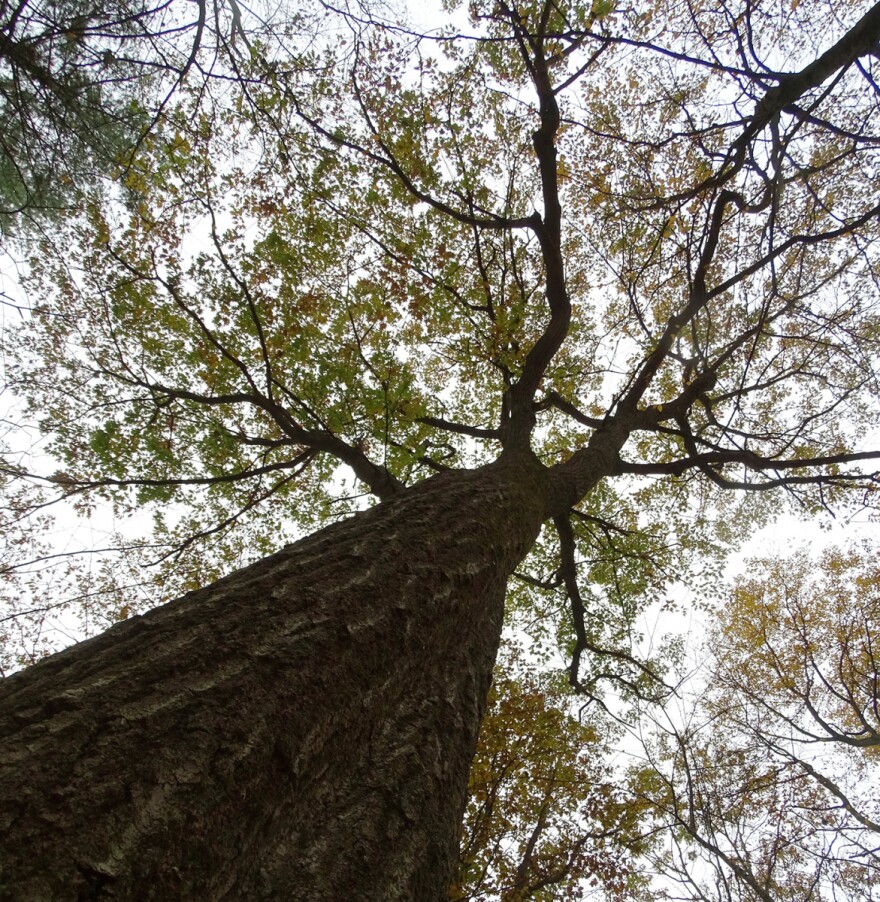A 100-year-old red oak grows in a secret location in Massachusetts … and here on the Colorado Plateau, a team of scientists has taught it how to Tweet.
The project was inspired by a network of Tweeting trees in Europe, but the Harvard Witness Tree is the first of its kind in North America. It’s aimed at collecting climate change data. Sensors and cameras continuously monitor the tree. They measure when its trunk shrinks or swells and how much sap flows beneath its bark. The information is linked with a Harvard archive that holds fifty years of climate data. Then computer code translates the data into messages.
Tim Rademacher of Northern Arizona University wrote the algorithm that gives the tree its voice. He says the tree really does speak for itself—no human tells it when to Tweet or what to say. An intern from Coconino Community College, Shawna Greyeyes, worked with the team to craft language free from scientific jargon. Real-world data drives the messages.
The tree tells its followers when it’s warmer than usual outside, or when a big rainstorm soaks the soil. It’ll even take a selfie upon request, showing its branches spread against the sky.
Greyeyes says she hopes the project will remind people that trees have long memories. The Harvard Witness Tree is older than most humans and its rings record a century of wet and dry years, hurricanes and droughts. It’s learning to speak French and Spanish, too.
The team hopes to create an “Internet of Trees” networked across the continent, from schoolyards in Massachusetts to redwood forests in California.



